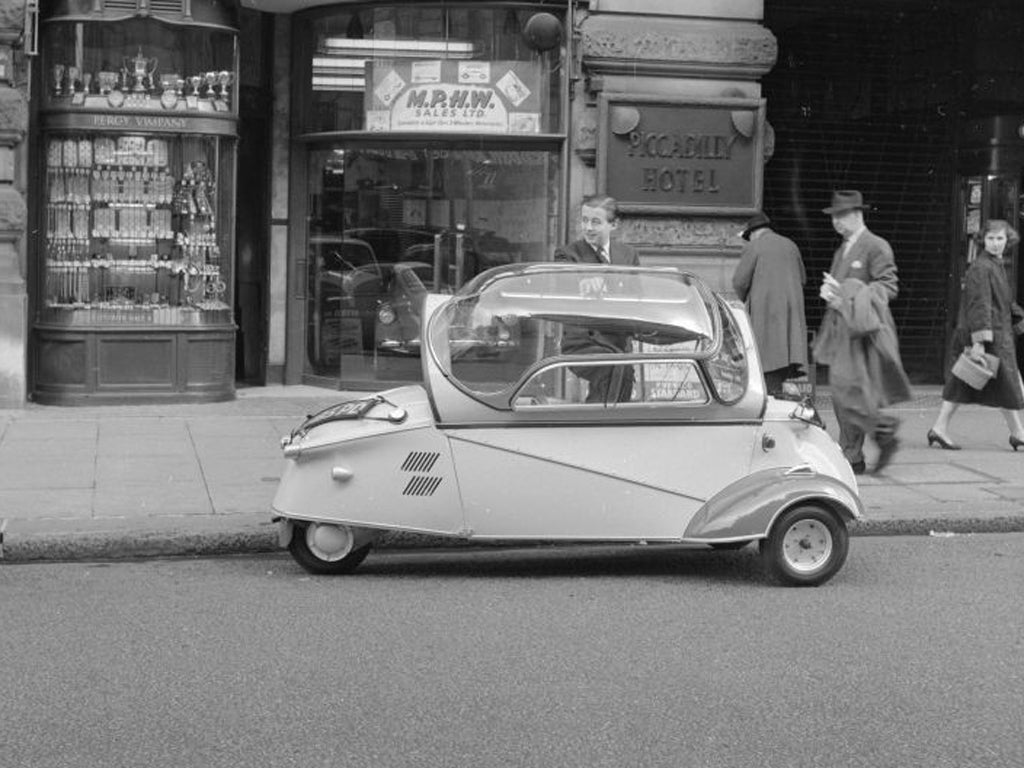Cheaper Than Walking, Radio 4, Monday One Man's War, Radio 4, Tuesday
Bubbling over with love for the 100mpg microcar

I'm not sure the bubble car has ever been taken seriously, and although Andy Kershaw tried his hardest, it was clearly difficult as he watched one trundle down the road. "It looks like a toy," he chuckled, "or a component of another vehicle that's dropped off and is rolling away on its own."
He was investigating the microcar – the term enthusiasts use – in Cheaper Than Walking, which took in postwar austerity and the Suez Crisis, when fears for our oil supply made the idea of a vehicle capable of 100mpg somewhat more attractive than it might otherwise have been. It was redolent of a less cynical age when, as Kershaw observed, we were ready to embrace the future.
He has a sure, relaxed touch, and there were lots of nice moments. He recounted a conversation with one enthusiast about his car's capabilities: "'0-60?' I asked him. 'Never,' he replied." He met former Sidcup Bubblers, who would take the Harwich ferry and proceed en masse to Hanover: "We used to drive down the autobahn on the hard shoulder," remembered one Bubbler, fondly.
He had a go in one himself, and loved it: "The most exciting aspect is that as you're driving along … the cockpit is filling up slowly with deadly carbon monoxide fumes!" I have banged on about this before, so apologies for doing it again, but Kershaw is a terrific broadcaster who really should be given his own programme, or at least a regular gig.
If the postwar years were austere, the war years were, of course, worse. But One Man's War underlined our glorious British refusal to let life be disrupted. It centred on Lionel Bradley of the London Library, who documented, with a series of recently unearthed performance notes, the way in which the classical music community helped maintain national morale, and how events in the wider world was reflected in our cultural life. He recorded, for example, how very little Russian music was played – until Russia became our ally.
Bradley attended a poetry recital given by Edith Sitwell, which was interrupted by the noise of a flying bomb overhead. The audience tensed as it flew over, just missing the building. Sitwell, he wrote, "didn't miss a line".
Join our commenting forum
Join thought-provoking conversations, follow other Independent readers and see their replies
Comments
Bookmark popover
Removed from bookmarks